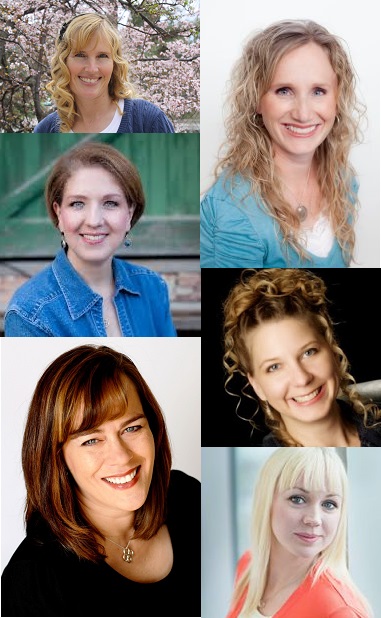by Annette Lyon
Writers are avid readers. (At least, they all should be.)
In today's interconnected world, that means entirely new things for the reader/writer relationship.
When I was a kid, I didn't necessarily have any idea who the authors of the books I read were, beyond a tiny bio at the back of a book, and a photo if I was lucky. The authors could have been dead half the time, for all I knew. (And many were.)
Today, however . . .
Almost all writers are a few clicks away on the computer. There's a very good chance your favorite writer has a website, blog, a Facebook page, and a Twitter account (or at least some combination of those things).
A side note: all writers should have some kind of online presence, even if it's a single bio page and an email address for publicists, book stores, and others to be able to reach you, such as if you've been nominated for an award.
Authors often interact with their readers through social media. Many writers have huge followings. Neil Gaiman has such a large Twitter following that often when he posts a link, the server on the other end crashes, leading to the Twitter hash tag #neilwebfail.
How writers can or should use social media isn't the point of this post, however.
The point is how you as a reader should approach writers online.
In the simplest terms, just remember two things:
1) The person on the other end is an actual, breathing human being.
2) They have feelings, especially about their work.
That may sound obvious. But the ease with which we toss out texts, status updates, tweets, and emails, we often forget basic courtesy.
It's one thing for me to rant about why I really don't like one of Faulkner's books when he's dead and gone.
It's something else entirely to shoot off an angry email to a living, writing, publishing author, right after I read a book, if their latest release didn't live up to my expectations.
The writer ego is a tricky thing. One minute you feel like you can take on the world and can really do this literary thing.
The next second, you're ready to curl into the fetal position and rock back and forth, certain that you're an idiot for putting your work out there because it stinks and people hate it.
We writers do this to ourselves already.
We don't need the help of trigger-happy readers.
I'm not talking about readers giving honest reviews on GoodReads or Amazon or on their blogs. That's part and parcel of the whole publishing gig. Writers who react poorly to bad reviews need to grow up, and never go on the attack. Not cool, people.
But it's a good reminder for all of us that when we're reading books, and the writers are out there, right now, ready to hear what we have to say (and are likely watching the internet for references to themselves, as most writers have Google alerts set up for this), they will catch what's going on. Word gets around.
And if you decide to write a hasty, angry email in the middle of the night directly to the writer? You may well regret it in the morning. And the writer may well wake up, eager for a day of writing, only to be shot down by someone the moment they check their email.
Again, I'm not implying that reviewers can't be honest. Or that readers can't contact writers. Not at all.
Reviewers serve an important role, and honest, helpful reviews go a long way. (Nasty, bitter reviews aren't useful for readers or for writers, however.)
And as a writer, I love getting reader feedback. At least I do when it's written with the understanding that I'm human, I'm not perfect, and I'm trying hard to improve.
Think of it this way: If you wouldn't say it to the author's face if you met them, don't send a DM or an email saying it either.
And to mix metaphors: If you're an aspiring writer yourself, remember that you may be in the hot seat one day, and any bridges your burn today will almost certainly come back to to bite you tomorrow.
Be kind. Be courteous. Be helpful. That doesn't mean putting on a fake face, but that does mean a bit of restraint.
And basic manners.







5 comments:
Nicely put. Thanks, Annette.
I hope when I die, I can be dead only half the time, like those authors you read when you were younger.
Nice post, Annette. :)
Well said, Annette. So I don't like a book. Others do. Why do we feel the need anymore to tell people when we don't like something?
Boy, I'd love to know what prompted this.
And also, I wholeheartedly agree. I think another thing to is that readers who contact writers in a really large market need to understand exactly the kind of volume of emails those people receive and to not take it personally when they can't get right back to you. They have a lot of fans and they have to balance that against a real life.
Amen! And I want to be dead only half the time too! That would put a mighty convenient spin on the finality of death :)
Post a Comment